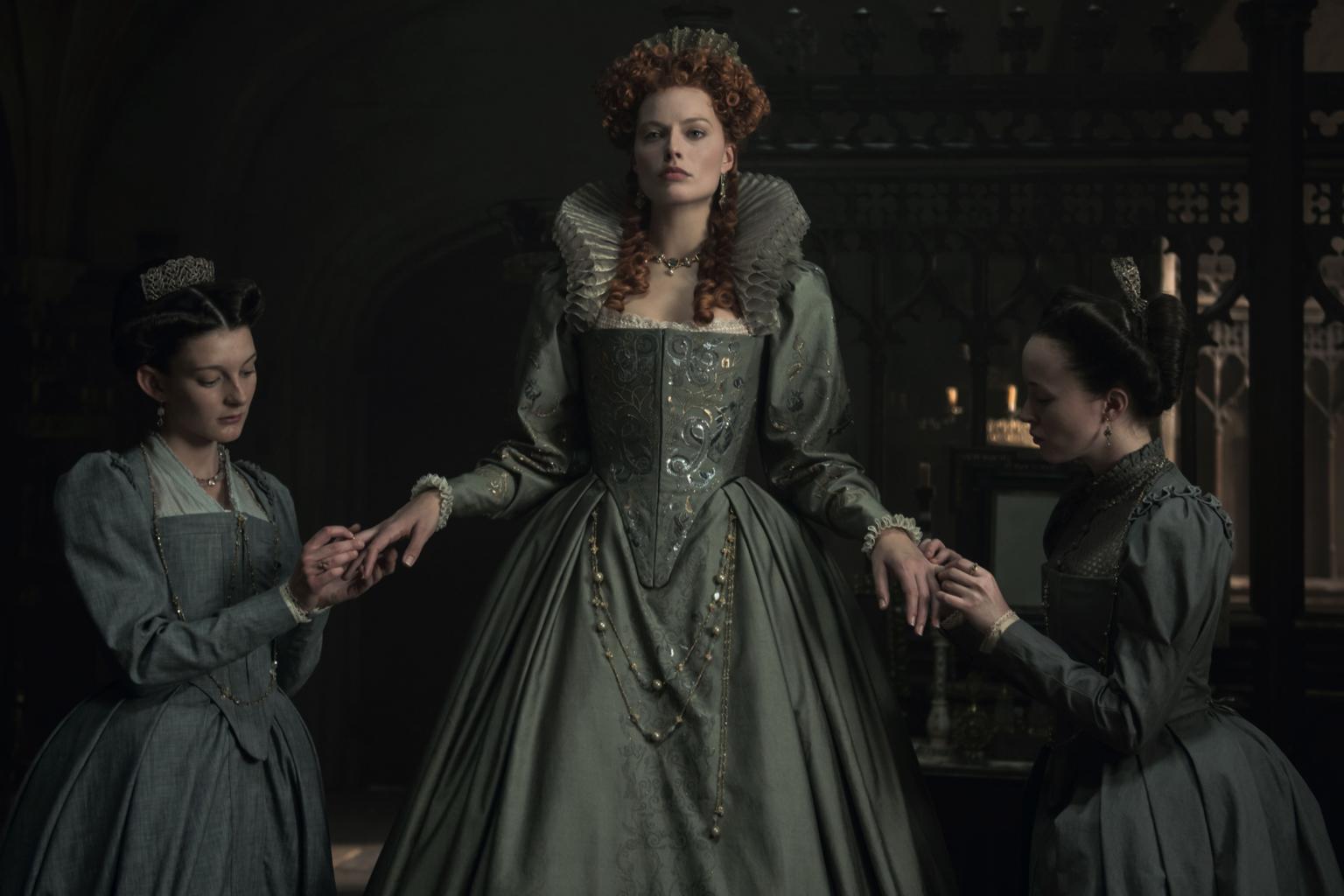Movie review: Two queens who fear and respect each other in Mary Queen Of Scots
Sign up now: Get ST's newsletters delivered to your inbox

Margot Robbie takes on the role of Queen Elizabeth I of England in Mary Queen Of Scots.
PHOTO: UIP
Follow topic:
Period drama
MARY QUEEN OF SCOTS (M18)
125 minutes/Opens Feb 28/2 stars
The story: In 1561, Mary Stuart (Saoirse Ronan) comes to Scotland from France to take her place on the throne. By blood, she also has a claim on the throne of England, ruled by her cousin Elizabeth (Margot Robbie). As Catholic Mary tries to consolidate her power, firebrand Protestant minister John Knox (David Tennant) is doing his best to undermine it, often aided by the forces behind the Protestant Elizabeth. The two women find they have much in common, but that mutual respect is difficult to sustain in a climate of paranoia.
If you have a feeling of deja vu, do not worry; it is not you, it is Hollywood. This week, there are two palace pictures in cinemas. Both are Oscar-bait products, but one is clearly superior to the other. Guess which one this is.
For context: Queen Anne, a key character in The Favourite, is a monarch of the same Stuart lineage as Queen Mary, but who lived a century and a half after her.
But while one story is a comedy about the indignities people will tolerate for the sake of climbing the ladder, this movie is a sincere attempt at eliciting sympathy for a woman who finds herself in charge of a nest of vipers.
Mary truly wants to be a good regent, fair to Protestants and Catholics alike. She seeks to correct the sins of her forebears, among them King Henry VIII of England, he of the six wives.
Earnest historical dramas are a tricky play. Try too hard to sell the idea that a queen is a prisoner of her circumstances and the movie becomes a weepie about a weak, naive woman; make her look too competent and heroic and it loses threat and drama.
This work's movie sin belongs to the former category. Ronan's Mary makes decisions here and there, but mostly she appears to be a pawn, hapless and bewildered.
American Beau Willimon made a name writing and producing the acclaimed Netflix political thriller series House Of Cards. As screenwriter here, he does not set a torch to the facts of Scottish history the way Mel Gibson did in Braveheart (1995).
He and British director Josie Rourke, making her feature debut after a long career in theatre, frame this as the story of two women, Queen Mary and Queen Elizabeth, each of whom harbours complicated feelings of fear and respect for the other.
Rourke and Willimon pack the canvas with births and deaths, illnesses and recoveries, not to mention clerics, aristocrats and courtiers making speeches in static fashion. And a crucial battle that cements Mary's power, portrayed in such a confusing and sluggish manner one wonders why they bothered showing it at all.
The result is a busy-looking catalogue of events that never adds up to a story.

